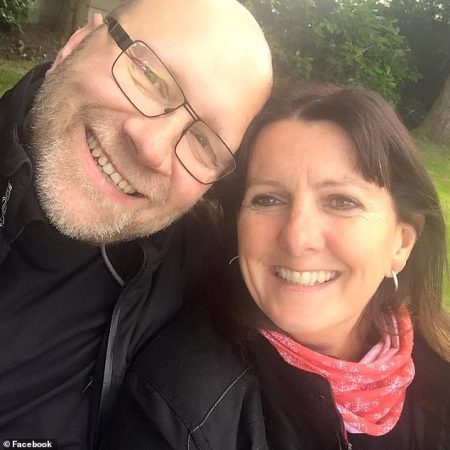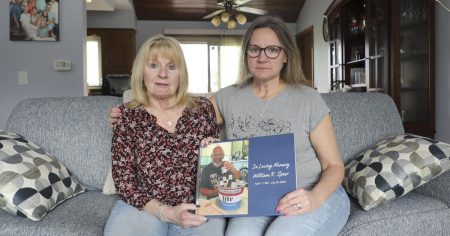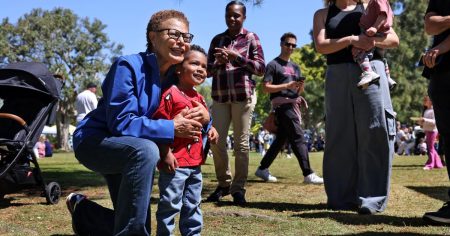A significant legal ruling has granted a Palestinian refugee family the right to live in the UK under a scheme originally designed for Ukrainians fleeing the war with Russia. The family of six, including parents and four children aged between seven and 18, had applied to the UK’s Ukraine Family Scheme to join their brother, who is already residing in the UK. However, their application was initially rejected by the Home Office. In a dramatic turn of events, an immigration judge overturned this decision, ruling that the rejection breached the family’s human rights. The case has sparked heated debate, with implications for future immigration policies and the interpretation of human rights laws in the UK.
The family, hailing from Gaza, argued that their circumstances were uniquely compelling and compassionate. Their home in Gaza was destroyed in an airstrike, and they faced daily threats to their lives in a refugee camp. They believed the Ukraine Family Scheme, which was established in March 2022 to help Ukrainians and their family members escape the war, was the best fit for their situation. The scheme allowed individuals with family members who were UK nationals or settled in the UK to seek refuge in Britain. Although the scheme closed in February 2024, the family submitted their application in January 2024, hoping to reunite with their brother in the UK. Despite their dire circumstances, the Home Office rejected their application, stating that the scheme was specifically designed for Ukrainians and did not apply to Palestinians.
The family’s legal battle began when they challenged the Home Office’s decision at an immigration tribunal. Initially, the tribunal refused their claim, agreeing with the Home Office that the Ukraine Family Scheme was not intended for Palestinians. The tribunal ruled that it was up to Parliament, not individual judges, to decide which countries should benefit from resettlement schemes. However, this decision was later overturned by Judge Hugo Norton-Taylor at a higher-level tribunal. Judge Norton-Taylor ruled in favor of the family, citing Article 8 of the European Convention on Human Rights (ECHR), which protects the right to family life. He emphasized that the family’s “extreme and life-threatening” situation outweighed the “public interest” of adhering to strict immigration rules.
The Home Office has since stated that the ruling does not set a precedent for a broader resettlement scheme for Palestinians or others from conflict zones. They have vowed to contest similar claims in the future. However, critics argue that the decision could have far-reaching implications. Shadow Home Secretary Chris Philp warned that the ruling could “open the floodgates” for individuals from conflict zones around the world with family ties in the UK to seek entry. Philp criticized the decision as “alarming and dangerous,” asserting that it undermines Parliament’s authority to determine immigration policies. He called for changes to human rights laws to ensure that such decisions are made by elected officials rather than judges.
The case has reignited the debate over the balance between human rights and immigration control. Supporters of the ruling argue that it upholds the fundamental right to family life and acknowledges the dire circumstances faced by the Palestinian family. They emphasize that the UK has a moral obligation to protect vulnerable individuals fleeing war and persecution. On the other hand, opponents, including Philp, argue that the decision risks creating a loophole in immigration policy, potentially encouraging large numbers of people from conflict zones to seek entry into the UK based on family ties.
As the UK grapples with the implications of this ruling, the broader debate over immigration and human rights continues to unfold. The case highlights the complexities of implementing schemes like the Ukraine Family Scheme, which was designed to address a specific crisis but has now been interpreted more broadly by the courts. While the Palestinian family has won the right to reunite with their brother in the UK, the ruling raises important questions about the limits of immigration policies and the role of human rights in shaping them. The outcome of this case may set a precedent for future decisions, influencing how the UK responds to refugees and asylum seekers from conflict zones around the world.









